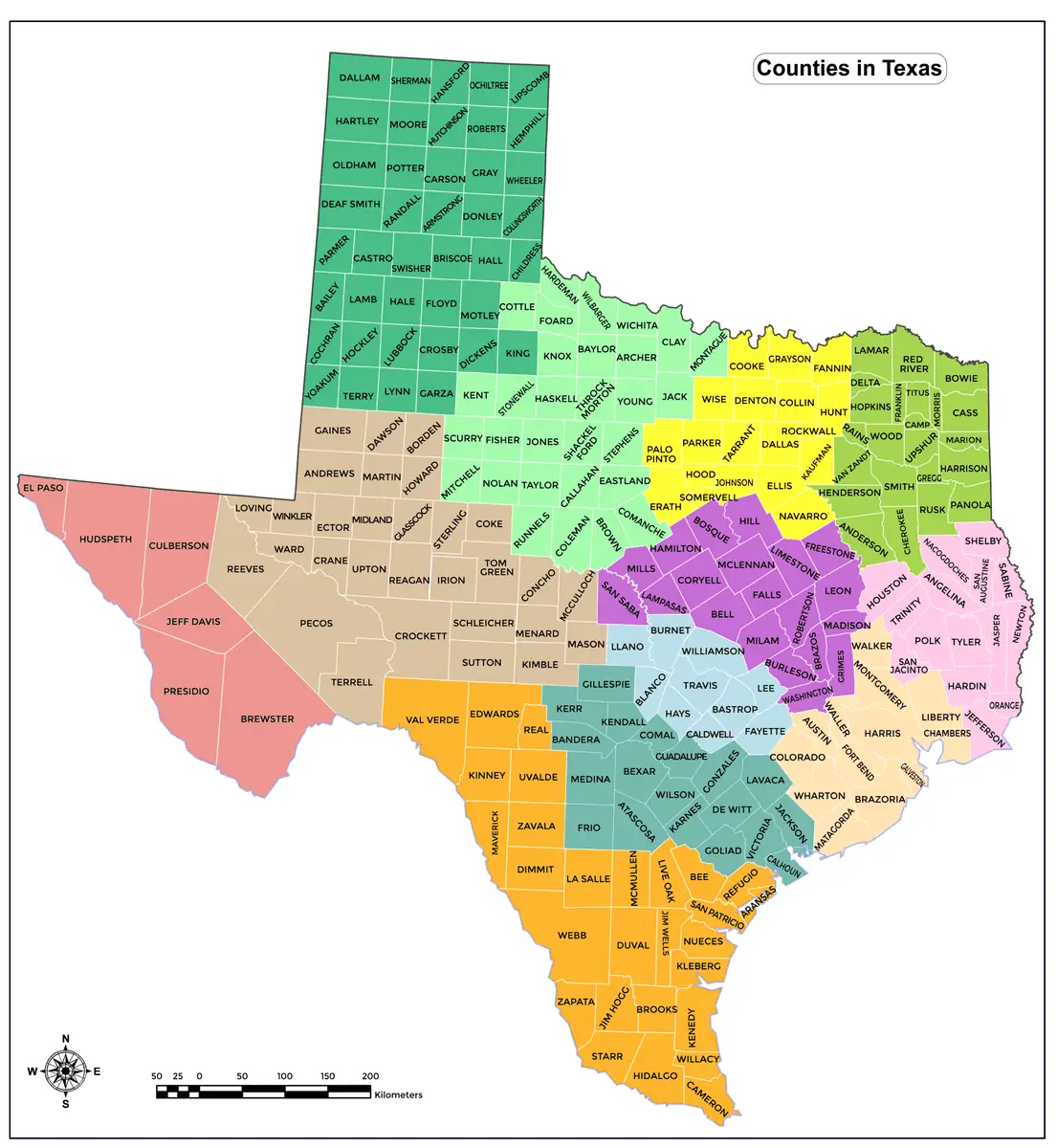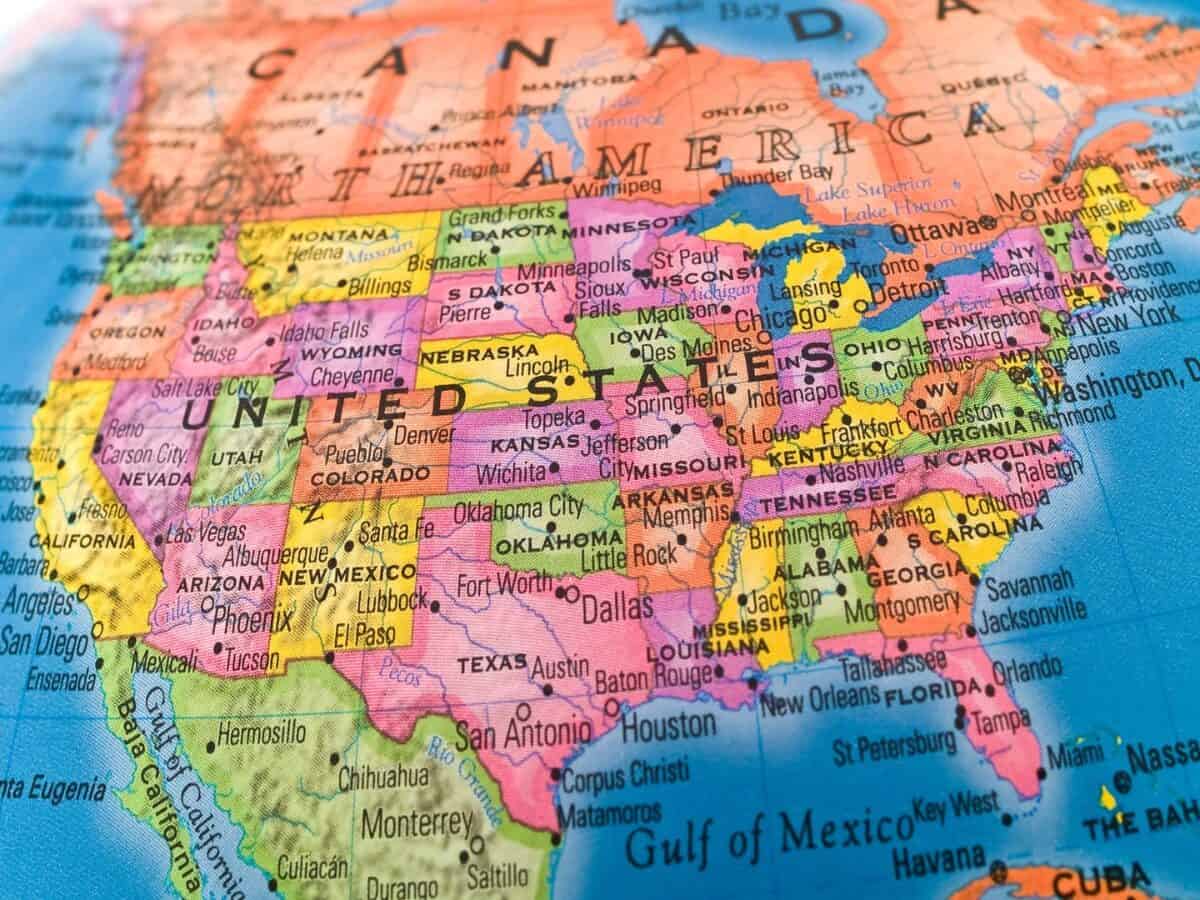Share the post "To Secede or Not to Secede: The Texas Question"
Can Texas be its own country? After all, it was a solo entity for a while, so it’s not uncommon to wonder if it could happen again.
While the Lone Star State has a strong reputation for independence, there isn’t much room for a legal secession of Texas from the United States. However, the state’s history makes it easy to see where the misunderstood notion comes from.

Can Texas Be A Country Separate From USA?
Legally speaking, Texas doesn’t have the right to secede and become a country on its own — at least no more than any other state in the Union.
Before we dig deeper into whether or not the Lone Star State could sustain itself, let’s break down the historical side of things first.
Explaining Texas’s Short Period of Independence
Whenever anyone doubts Texas’s position on secession, people often refer back to the state’s period of independence as proof that it’s a possible scenario.
Texas was indeed a sovereign Republic for a hot minute after its separation from Mexico in 1836 and before the annexation in 1845. However, that doesn’t mean this situation could repeat itself anytime soon.
That said, this whole Republic of Texas historical period gives many people a stronger belief that Texas could run as a separate country if things come to that.

How Texas vs. White Settled the Matter Legally
If anyone had doubts about the legal standing of secession, the Texas v. White case back in 1869 helped clear things up. While the details are complicated, the conclusion was that no state could just up and leave the Union, even if a majority in a vote backed the decision.
Even during Confederate rebellions, Texas was still considered a state under the governance of the United States. So, in a way, secession had never really been a legal option — not then, and not now.
Was Texas v. White about the secession?
No, the 1869 case wasn’t directly concerned with secession or annexation, for that matter. However, it clarified the law’s word that seceding isn’t a legal option, even with vote ratification.
The conclusions of the case apply to Texas just as much as it does to all states that were part of the Confederates during the Civil War. At all times, they were still states in the eyes of the law despite the rebellion.
Can Texas be divided into sub-states?
While the post-annexation law doesn’t give Texas the right to secession, it does allow it to divide into sub-states. As long as the new states are less than four, making five states in total, it’s possible, from the legal perspective, to see the Lone Star State chopped up into several regions.
While the Texas divisionism movement isn’t as popular as the seceding narrative, it still has its fair share of advocates. However, no part of the “new” states would be a standalone country. Instead, they’ll still be part of the Union.

What would be Texas’ strength points as a standalone country?
Assuming that the legal aspects are out of the equation and Texas does manage to secede, it would have a few strong points working in its favor:
- A thriving industrial sector (in the top ten GDP reports worldwide)
- Vast land for agricultural and social growth
- Dense population (over 28 million as of 2019)
- A hefty and independent power grid (the Electric Reliability Council of Texas covers 90% of the state’s power load)

3 Reasons Why Texas Can’t Be Its Own Country
The word of the law is clear on the illegality of secession. However, even more reasons make this take-off unlikely.
From the dependence on Federal Social Security systems to the sense of belonging, there are a few reasons why we probably won’t see Texas exiting the Union anytime soon. Here’s why:
1. Texans Would Have to Make Up for Social Security Dependence
The tax systems in the United States cover millions of Social Security beneficiaries in Texas. These range between Old-Age (retirement), Survivors and Disability Insurance (OASDI), and Supplemental Security Income (SSI).
If that were to go, many people would be left in a tough financial situation in a blink. A lot of tax restructuring would have to take place before the Lone Star State would become truly independent.

2. The Land Security Situation Could Pose a Risk
A full-on secession would leave Texas out of the United States’ defense coverage. With cartels, water rights, and extensive borders, the situation could get messy very quickly without troops to take over.
While it’s not a very imminent danger, it’s still a possible scenario that has to be discussed before any talk of secession takes place.
Some people believe the Texas State Guard could step in and handle a situation like this. That theory hasn’t been put to the test, though.
3. Many Texans Have National Pride, Too
Even if you hear the Texas secession chatter, the truth is that a lot of Texans take pride in being American. Sure, they’ll take pride in their state, but that doesn’t mean everyone would willingly give up their American identity on a whim.
If things come to this, it’s not entirely out of the question that a huge chunk of the citizens would prefer to move out to any other state.
The issue is that the Lone Star State could also lose valuable human resources and skilled workers. This can be a tough blow for any newly established independent entity trying to build itself, and Texas is no exception.

References
- Texas v. White: houstonpublicmedia.org
- Millions of Social Security beneficiaries: ssa.gov
- Top ten GDP reports: businessintexas.com
- 28 million: forbes.com
- 90% of the state’s power load: ercot.com
Share the post "To Secede or Not to Secede: The Texas Question"
Christian Linden is a seasoned writer and contributor at Texas View, specializing in topics that resonate with the Texan community. With over a decade of experience in journalism, Christian brings a wealth of knowledge in local politics, culture, and lifestyle. He holds a Bachelor's degree in Communications from the University of Texas. When he's not writing, Christian enjoys spending weekends traveling across Texas with his family, exploring everything from bustling cities to serene landscapes.











